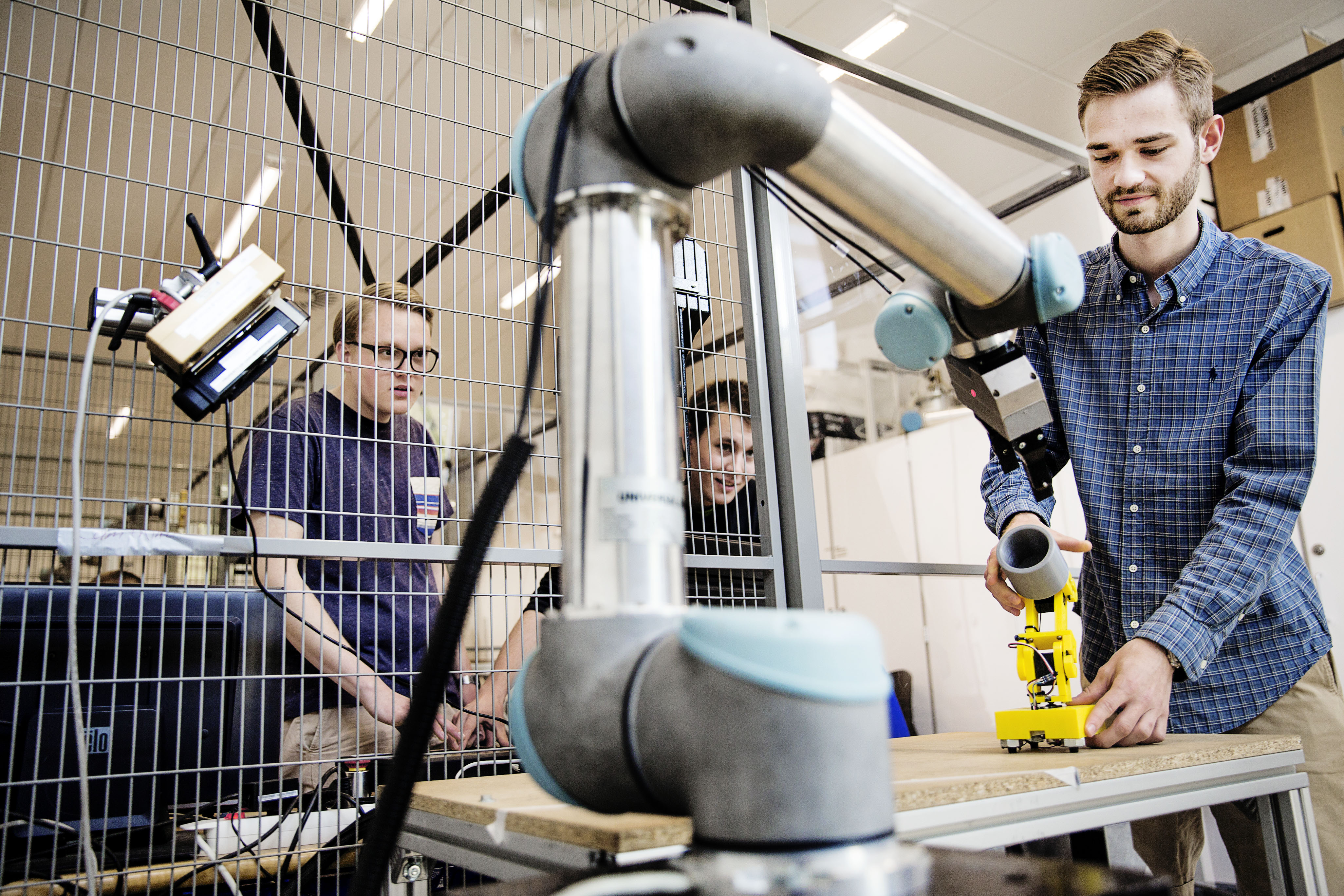
SDU invests DKK 100 million in Industry 4.0
SDU is to strengthen its position as Denmark's leading university in the field of robot technology with an investment of several million Danish kroner. The money will prepare students and companies for a world where robots collaborate with humans, manufacturing is automated and where everything can be tested virtually.
By Birgitte Dalgaard, bird@tek.sdu.dk, 17.4.2018
SDU is investing heavily in new technologies, such as hyper-flexible robots, virtual reality, smart materials and soft robotics. In the next 4 years, SDU will invest DKK 100 million in building up facilities so that students, researchers and companies are ready to transform the fourth industrial revolution - Industry 4.0 - into innovative products and smarter production.
- It's important that as a university we are breaking new ground. That we are at the forefront of researching the possibilities of Industry 4.0. In this way, we'll secure the best and most challenging environment for our students and researchers. At the same time, it's also important that we help our companies to understand and utilise the possibilities of new technology so that they are competitive on the global market.
This is according to Head of Department of the Maersk Mc-Kinney Moller Institute Kasper Hallenborg, who is the brains behind the new Industry 4.0 centre of excellence. He refers to the report "Winning the Industry 4.0 Race" from Innovation Fund Denmark. The conclusion is that Denmark is lagging behind, with falling levels of competitiveness and innovation.
- We want to shake up the usual way of manufacturing products. We need to get away from in-line production and move towards a cell-based production environment that can quickly adapt to new tasks, handle a greater complexity of tasks and which is not as vulnerable to breakdowns, says Kasper Hallenborg.
Industry 4.0 Lab
The investment will go towards four related initiatives surrounding Industry 4.0, and SDU is already underway with setting up an Industry 4.0 Lab, which will house a number of hyper-flexible robots.
The robots will work in independent cells in which researchers and students will further develop the robots to be able to make decisions, adapt to sudden changes and communicate with each other.
- We're talking about customisation. That consumers want products that are precisely adapted to their individual tastes and needs. The new forms of production using hyper-flexible robots will make it possible for companies to produce limited amounts of unique products without the prices skyrocketing, says Kasper Hallenborg, and continues:
- I also imagine that we'll see a completely new market opening up where people advertise that they have flexible robots that can cheaply produce a newly developed invention. At present, inventors usually send their orders to China because they can produce small series cheaply there, but in the future that won't be necessary.
Testing using virtual reality
Industry 4.0 is not just about refining autonomous robots. The fundamental aim is to get the different stages of a production to speak to each other. When a customer places an order in the web shop, the production plant will immediately adapt to manufacturing the product.
Software connects every stage of production, and everything is digital. This also opens up completely new possibilities for using virtual reality to test new or improved systems.
- Previously, I've helped to develop a baggage system for airports so that they can better handle the growing amount of baggage with greater flexibility. But you can't experiment too many times with that before passengers get annoyed. So the opportunity to test and make simulations using virtual reality or augmented reality is a great advantage, explains Kasper Hallenborg.
But because the systems in the production of the future are network-based and can be accessed in many ways, the systems are also vulnerable to hacking.
- Hacking is a problem that's only getting bigger. We're hearing more and more in the press about hacker attacks, and how large systems we normally trust are being brought down. So cyber security is one of the big challenges facing future systems, points out Kasper Hallenborg.